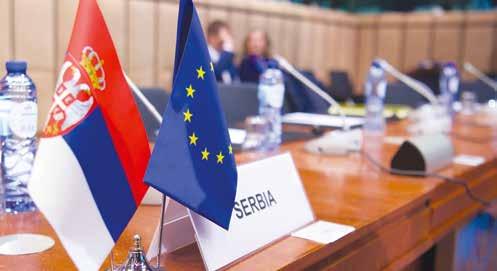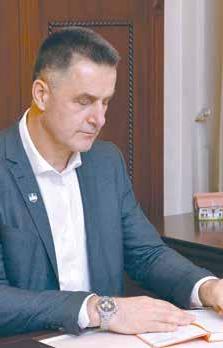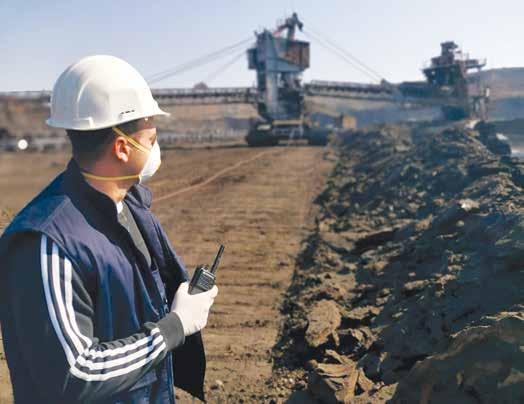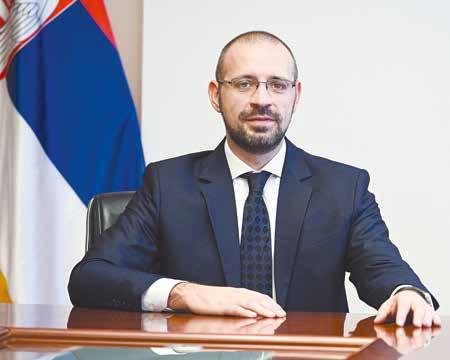COMMENT
Taking On New Challenges With A New Government With the first package of assistance to the economy, the Serbian Government fulfilled its task of preserving most economic sectors and jobs. Future outcomes depend to a large extent on the global development of the situation, but also on the readiness of the new cabinet to persevere with reform principles and its dialogue with the economy
D
espite being expected, the results of the parliamentary elections of 21st June confirmed that Serbia expects a government of continuity. This is very important in an economic sense, because it is expected that the new cabinet will also decide on the policy of continuing fiscal stabilisation and, finally, the continuation of reforms that slowed down in the previous period. These policies will undoubtedly be under the strong influence of the consequences of Covid-19. However, judging by the views of international financial institutions, domestic experts and the business community, they are necessary for Serbia to return to the path of accelerated growth following the expected hit caused by the quarantine. At this juncture there are still no economic indicators that could more clearly outline the consequences the quarantine had on the Serbian economy. Specifically, in order to provide an overview of the situation, alongside data for the months of quarantine, it will be even more important to check data from May, and even more so June, when most companies began returning to normal operations. What is encouraging is certainly the fact that the implementation of some foreign investments that had already been agreed has now continued. The further development of the situation depends largely on the currently very unfavourable development of the epidemiological situation around the world, which prevents a quick return to the normal level of economic activity. Serbian companies, according to numer-
ous surveys that have been released in the meantime or are underway, have replaced the pessimism of April with relative optimism, and a belief that they could return to normal operations by the end of this year, and could compensate for losses incurred during the quarantine within two years. This optimism is based on the extensive and timely distributed package of assistance from the Government of Serbia to the economy, as well as the fact that businesspeople in Serbia are accustomed to great economic turbulence and raw survival, as a definition of success.
conditions of full return to normality. This relates primarily to the tourism industry and the automotive sector, which has perhaps been hardest hit by the virtual collapse of this industry at the European and global levels. Even if this second aid package were administered quickly, it is quite clear that countries like Serbia have a small fiscal capacity to intervene in the domestic market, because with more borrowing they would exceed the level of borrowing considered as being risk-free. It is due to these reasons, but also due to the fact that countries with small internal markets
The election results indicate that a new government could be formed very quickly, which is very important, as the hardest hit sectors of the economy require a second targeted aid package Data on GDP movements, production levels, exports and the number of jobs will undoubtedly change in the coming months. They will depend to a large extent on economic trends at the global level, and primarily in Europe, because the Serbian economy is connected to the European market and dependent on its European partners, even more than that may seem. The aforementioned election results indicate that a new government could be formed very quickly, which is also important, because after the first aid package there is, for now, no second targeted aid package directed towards those sectors that have been hardest hit and which couldn’t recover quickly even under the
cannot rely on internal forces to compensate for external disturbances, that the fate of the Serbian economy will depend to the greatest extent on the epidemic and the economic situation in Europe and globally. In such a narrow but still significant space for action, a need arises for additionally close cooperation between the business community and the Government of Serbia on improving the business climate, accelerating digitalisation and the reform labour legislation, which would, on the one side, accommodate the challenges of organising work from home and, on the other, extended periods of engaging workers with reduced working hours. â–
July
5












